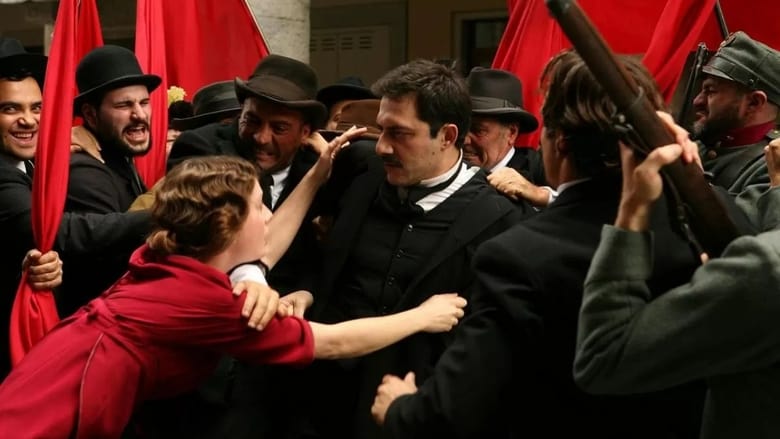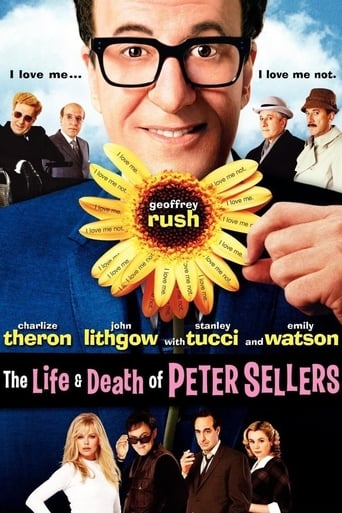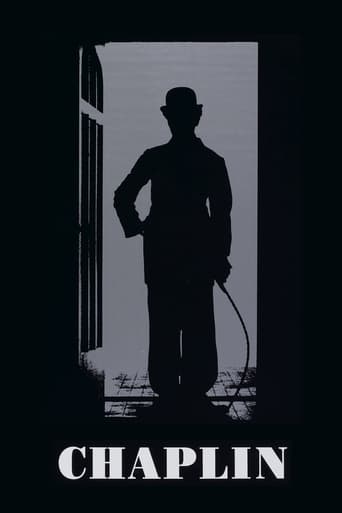Vincere (2009)
The story of the descent into madness of Mussolini's secret first wife, Ida Dasler, who was seduced by his passion and vigor but blind to the fascist dictator's many flaws.
Watch Trailer
Cast


Similar titles
Reviews
Pretty Good
Please don't spend money on this.
Excellent, Without a doubt!!
A terrific literary drama and character piece that shows how the process of creating art can be seen differently by those doing it and those looking at it from the outside.
Marco Bellocchio's 'Vincere' is a dark and powerful film that follows Benito Mussolini's rise to power through the eyes of his first wife, Ida Dalser, who was seduced and then betrayed by Mussolini as he abandoned her and their son on his way to becoming Italy's dictator, ultimately disavowing any knowledge of their existence. The film starts with a stylish and operatic punch as a young Mussolini (played by Filippo Timi) veers away from socialism to form the National Fascist Party, the narrative speeding through historical events at a steady pace for the first half hour, interposed with newsreel headlines and archive footage projected on screen in a manner reminiscent of Lars Von Trier's 'Europa'. Abruptly the film shifts focus to Ida Dalser (Giovanna Mezzogiorno) as she is forcibly separated first from Mussolini, then from her own son and finally from the outside world as Mussolini attempts to cover up any trace of their marriage and has Dalser committed to an insane asylum. Not only does this present a shift of perspective, but it's a stark shift in the film's tone too. Gone are the stylish and grandiose themes of revolution, seduction and upheaval, replaced by a tragic and startling performance from Mezzogiorno as her character descends further into mental illness. Filippo Timi provides a frenzied and forceful portrayal of both 'Il Duce' and the adult version of the dictator's unrequited son, but it's Giovanna Mezzogiorno's career defining performance that steals the show, showing Dalser as strong, resilient and somewhat naive in outset, harrowed, resigned and on the very brink by the film's close. Mezzogiorno's role is somewhat allegorical of the film as a whole, as like Italian society Dalser too was seduced and subsequently betrayed by the charm of the fierce and intelligent Mussolini. Ultimately with 'Vincere' Bellocchio and his lead actors present a mature and thought provoking look at one of the most clouded stories of Fascist Italy's past with an uncanny sense of style and dramatic flair and punctuated by the film's wonderful classical score. Remarkable.
The film is about Mussolini's secret lover Ida Dalser's tragic story. I know it is an important Italian film last year, but for me, before watching it, I even haven't seen a picture of Mussolini (fortunately enough at least I know who he is), and now, I think he looks a little bit like Robert Duvall (hope it is not an offense, to Signor Duvall). The well-recognized director Marco Bellocchio just passed 70, and as a disciple of Pasolini, through half a century, his films mainly are somewhat political-related, which explains very much why I haven't watched his other films yet. But after this one, I am more than happily to appreciate his other works, to name a few FISTS IN THE POCKET (PUGNI IN TASCA) (1965) his debut, HENRY IV (1984).It's a dark film, not only because of its palette (mainly depressive blue and purple, with scenes mostly happen in the night and later, inside a mental hospital), but also infused by the fate of our protagonist Ida Dalser (a marvelous Giovanna Mezzogiorno, whom I often mistake as Sarah McLanchlan). The reason why people (at least myself) love to watch tragic or dramatic films is because generally speaking, our own lives are not so turbulent, we need to see something to exercise or release our emotions, to make them move a little bit in case they will become numb. And I believe that dramatic films are much easier to make as often, the story itself has already been tantalizing enough so what the worst could it be? We have already prepared the tissue paper before the screen is lightening. I have to admit this film handled the sensitive topic skillfully, which proves that while aging, Marco is improving his skills too (which is so rare as we all know, 70s is definitely not a golden-era for directors), most obviously by substituting Filippo Timi's performance with black-white footages of real Mussolini in the latter part of the film, make sure the focus is Ida herself, as a man becomes the leader of a nation, he no longer belongs to any single person, at the same time any single person becomes trivial to him as well. I think Ida couldn't get through this, her love is blind, hormone-driven, but we feel sympathy for her because this is what we believe true love should be.It is a pity I'm not an Italian or I could have known more about Mussolini, otherwise I could enjoy more (or maybe not!). Anyway I am happy to see the surviving Italian directors from golden age still strive for making excellent films at a time when even Nanni Moretti has become legendary.http://xingshizuomeng.blogspot.com/
Much has been told of Italian dictator Benito Mussolini, but Marco Bellocchio's "Vincere" tells of another period during the Fascist's life. Or rather, not his life, but the existence of his first wife Ida Dalser. Played to a tee by Giovanna Mezzogiorno, Ida met Benito (Filippo Timi) back when he was the editor of socialist newspaper Avanti. It was right before WWI when the future Il Duce broke away from the socialists and established the newspaper Il Popolo d'Italia. Not only that, having gotten injured in the war, Mussolini dumped Ida and Benito Jr. for his more famous wife Rachele (Michela Cescon).It this point, the movie shifts entirely to Ida and Benito Jr., while Mussolini is seen only in newsreels. It's as if Ida represents the common person in Italy. Whereas Mussolini used to be a common person, he suddenly becomes the distant, bombastic authority figure. Ida, meanwhile, is thrown into a mental institution. As her sanity deteriorates further and further, accompanied by the frigid weather, one gets a sense of what would soon happen to Italy.I had never known about this whole part of history, but it's good that the movie is recounting it. Without a doubt, this story serves to show what a megalomaniac Il Duce was - to say the least. But above all, it's important that we learn about the past so as not to repeat the mistakes.
You have to be kidding me, anyone who liked this.The story ends at minute 10: Mussolini won't acknowledge her or the kid. Boom. There's the movie. She tries no new strategy to get what she wants, just insists over and over. Until she dies. After two hours of boring the hell out of me.Movies need to go somewhere. Even Godard movies go somewhere. This just spins its wheels.But, some pretty good performances. Not incredible, but good.Also, for God's sake, they go to the movies like 1000 times in this. It was the turn of the century, they didn't even have that many. Terrible.

















